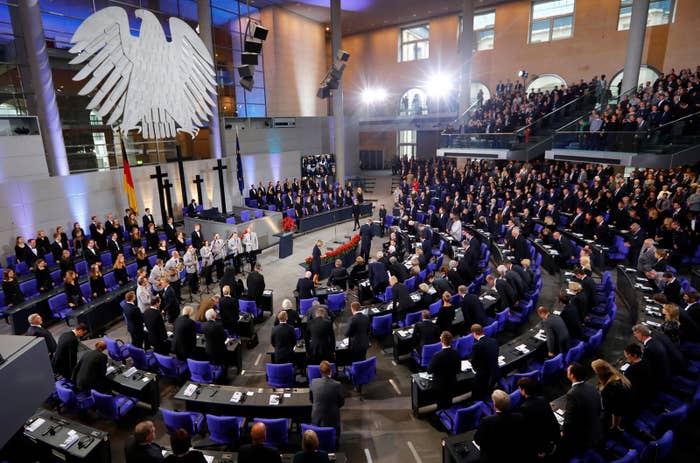
A 20-year-old has confessed to hacking and doxing hundreds of German politicians, German government officials said Tuesday.
“[H]e has been collecting data over the past year. He also says that he is dissatisfied with public statements made by politicians,” Holger Münch, head of Germany’s federal police agency, the BKA, said in a press conference Tuesday.
Münch declined to share the hacker’s name and most of his personal information, citing the country’s data privacy laws and that he isn’t yet 21. But he said the hacker was detained Sunday, then confessed in significant detail that he was behind the operation that posted lawmakers’ cellphone numbers, financial information, and personal correspondence online, and that he squirreled away copies in multiple places around the internet.
That dump of information conspicuously spared members of a single party: the surging, anti-immigrant Alternative for Germany, which in 2017 became the first far-right political party since the Nazis to win seats in the federal parliament.
Georg Ungefuk, spokesperson for the Central Office for Combating Cybercrime, said in the same press conference that the confessed hacker had “hacked data and published it, because certain public statements by the affected [public figures] annoyed him.”
The politically motivated dump of German politicians’ information hearkens back to several years ago, when hacktivists — hackers motivated purely by political desire — more frequently hacked and shared information of targets they opposed, like when Anonymous hackers broke into Stratfor, a for-profit intelligence company that sells subscriptions to governments.
In recent years, however, so many of the largest-scale hack-and-leak operations have been conducted by Russian military intelligence — which has gained such notoriety by posing as hacktivists to leak files stolen from candidates who run against far-right politicians, like the US’s Hillary Clinton in 2016 and France’s Emmanuel Macron in 2017 — that some feared this was Russia’s way of meddling in German politics.
“This kind of activity is certainly something we might expect from Russia, and while they might have perfected the game, they certainly didn’t invent it,” John Hultquist, director of intelligence analysis at FireEye, told BuzzFeed News.
Prosecutors found the confessed hacker cooperative and are examining his computers, and have released him because they don’t consider him a flight risk, they said.
CORRECTION
John Hultquist’s name was misspelled in an earlier version of this post.

